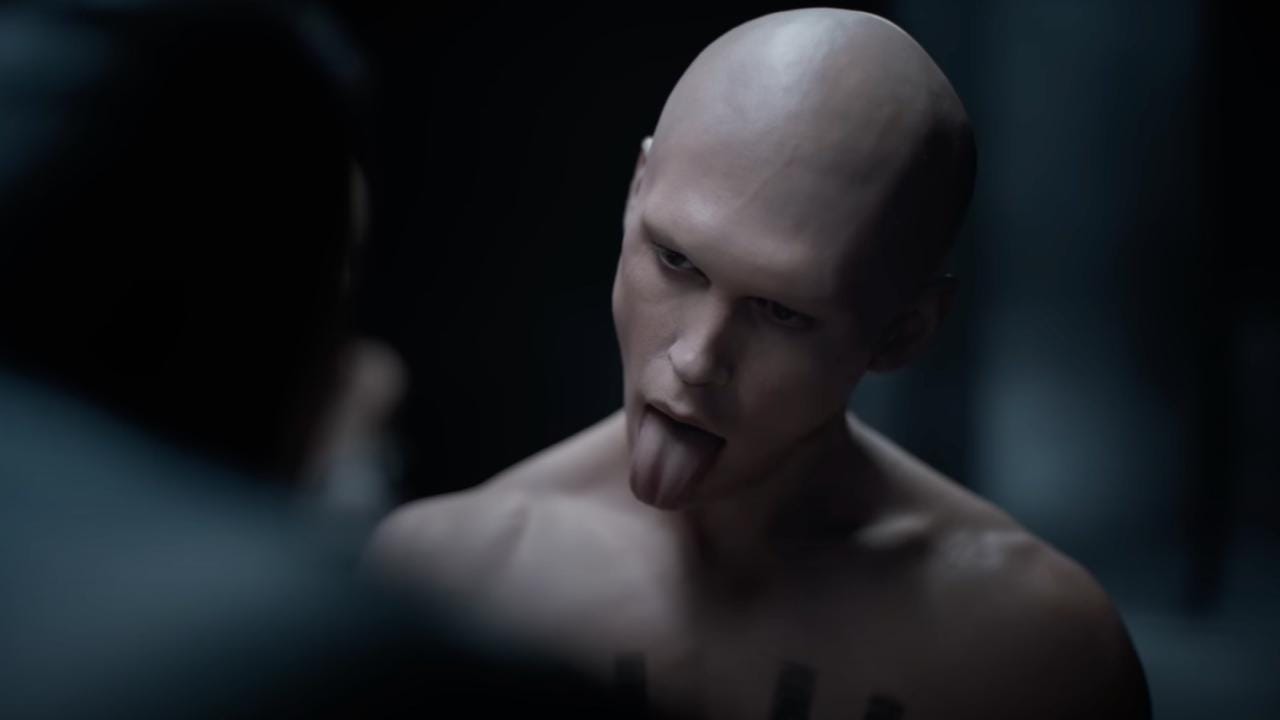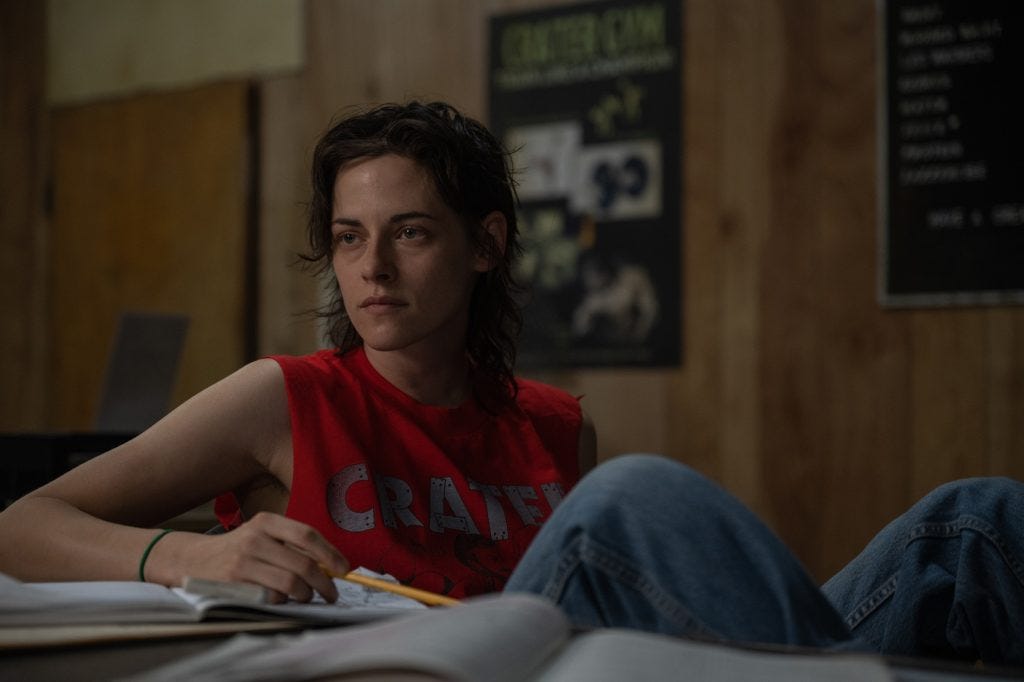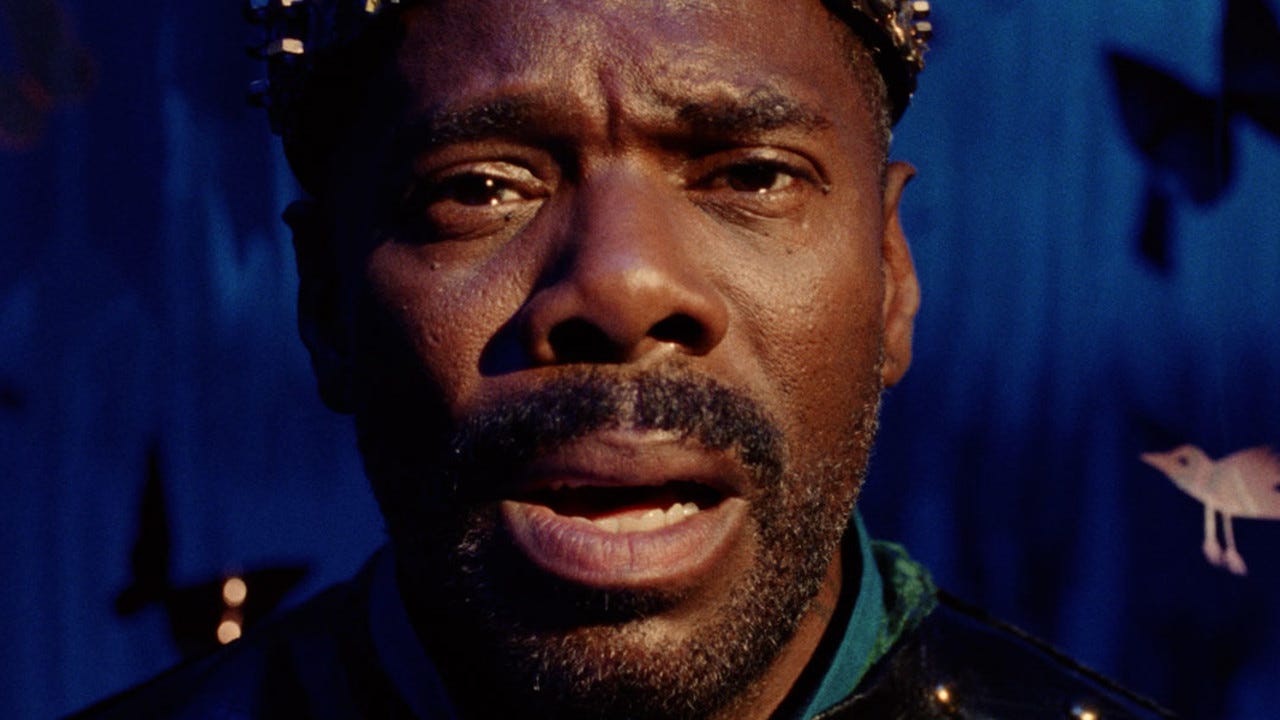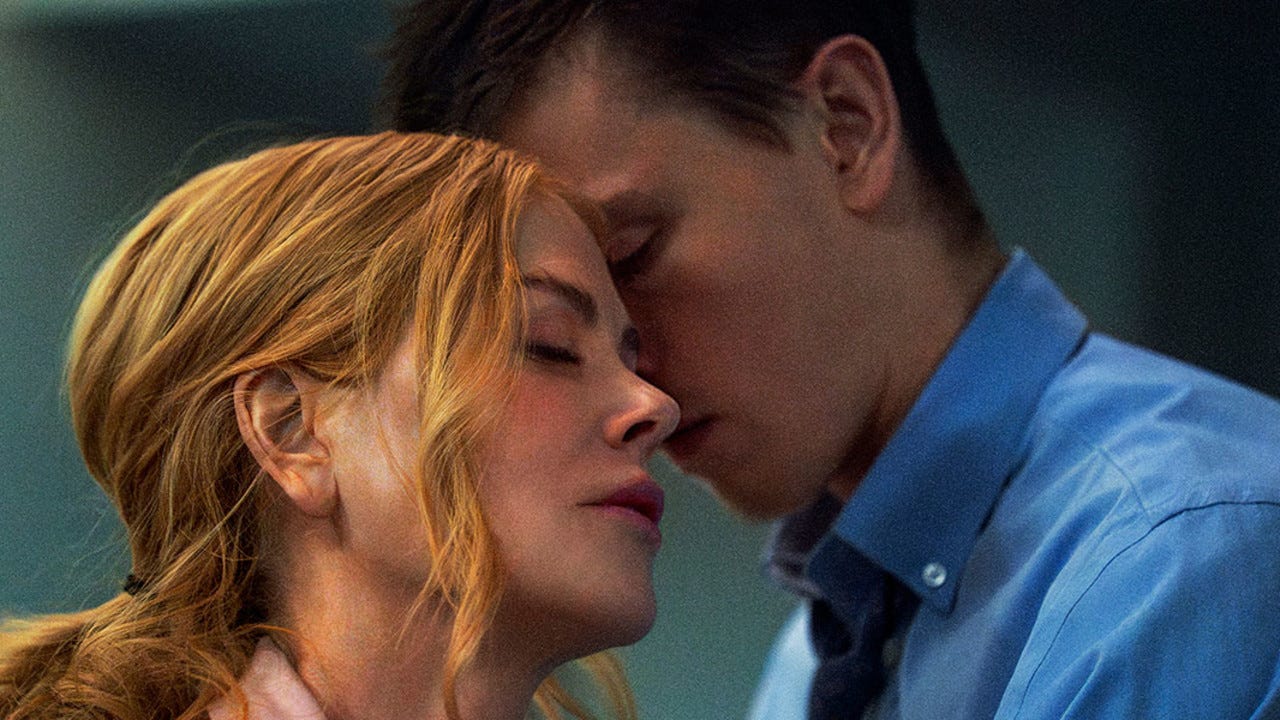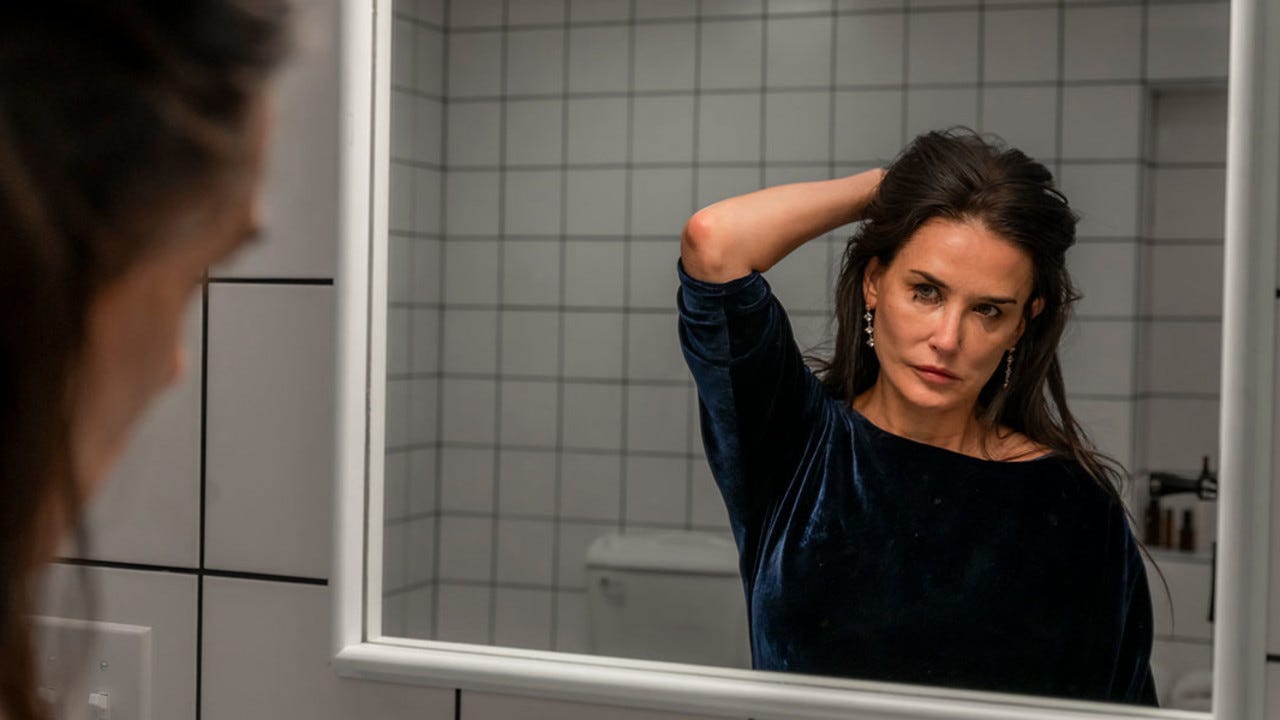Oscar Seasoning: My Favourite Performances of 2024
From different men and birds to babygirls and bleeding love...
I’ve submitted my top 10 films of the year (you can read them on Roger Ebert dot com) so it’s only fair that I share some of my favourite performances of 2024 as well. I haven’t seen everything and the pain of being beholden to British release dates means I won’t see a lot of the expected Oscar players until the new year. I chose these actors because they were the ones I couldn’t stop thinking about by the time I got to December. Some are more obvious than others but all are indicative of how a great performance can leave its mark well after the end credits.
Let me know which performances were your favourites in 2024 in the comments!
Sebastian Stan and Adam Pearson – A Different Man
(Image via A24.)
It’s official: Sebastian Stan is in his character actor era. He’s been dipping his toes into that world for a while but largely seen his quirkier work overshadowed by the mighty shadow of Marvel. While he’s still on the payroll as Bucky Barnes, it does seem like he’s more thoroughly in the next stage of his career and I for one welcome his decision to evolve into Willem Dafoe. Yes, the Trump movie was the one that got all the headlines but it’s A Different Man where he really shines.
Stan plays Edward, a struggling actor with neurofibromatosis that has left him feeling isolated and misunderstood. A miracle experimental treatment cures him of his condition and gives him the face of a certified hottie, but when he meets Oswald, a man with neurofibromatosis who is everything he isn't (confident, charismatic, talented), he begins to spiral into a shame-hole.
A Different Man is a very prickly movie that delves into some fascinating territory pertaining to Hollywood’s ableism. It’s bold and often unsettling in its endeavours, and also funny as hell. I think it’s largely been overlooked by more mainstream industry figures because it’s essentially a giant F*ck You to how “inspirational cinema” about disabled people is a crock of sh*t designed to win able-bodied actors awards. While Stan does wear prosthetics to play Edward, there’s no glory in this character. He hates himself, the world, and fate itself, and the more wound up he gets over it, the crazier it makes him.
Stan’s performance works in conjunction with that of Adam Pearson, who plays Oswald like if Austin Powers wasn’t a creep. He’s basically your dream man but with that edge of smarm. He might be All About Eve-ing Edward and nobody knows except his target, which makes it all the more hilarious. Pearson, who you may have seen in films like Under the Skin and Chained for Life, is perfect as a lovely guy who everyone loves and who is believably magnetic but still a bit of a d*ck. Put him in more things.
Austin Butler – Dune: Part Two
(Image via Warner Bros.)
Speaking of movies where good-looking guys get to be freaky weirdos. Nobody is slouching in Dune: Part Two. I could write about Javier Bardem’s turn as a zealot who gives away his entire being in the name of cult-like devotion, or Rebecca Ferguson as the self-styled mother of a prophet who mounts an eerily effective campaign of political spin in the desert. But my heart lies with Austin Butler as Feyd-Rautha Harkonnen, the hairless space pervert and mirror-verse version of Paul Atreides.
Butler got a lot of flack for giving himself over to Elvis in a way that many saw as performative because of the accent. I’ve come to appreciate his ability to commit to off-the-wall figures with a grounding charisma and unnerving quality. As Feyd-Rautha, a sociopathic nepo baby who believes himself to be noble, he is oddly appealing yet undeniably repulsive. Bald, weirdly chiselled, and with skin the colour of milky granite, he is the Harkonnen version of a sex symbol. He’s also terrifying, both physically and mentally. Butler does the best Stellan Skarsgard impression I’ve ever heard, to the point where I think Alexander and his brothers might have to adopt him. He’s trying to cozy up to his uncle the Baron but his intentions to usurp him are evident to all. Shout out to Butler too for seeing that the first film tried to erase all of the Baron’s weird queer incestuous vibes and deciding to put them all back in part two. He did what needed to be done. I’m sad we won’t see more of him.
Kristen Stewart – Love Lies Bleeding
(Image via A24.)
There are too many people on this damn planet who believe Kristen Stewart to be a bad actress. They are, of course, objectively wrong, and such assertions also overlook a crucial fact about her career: Stewart is an amazing comedic actress. In Love Lies Bleeding, she gives a hilarious performance as a gym owner whose romance with a roided-up body builder (played by the amazing Katy O’Brien) leads to trouble with the law and her crooked father.
She gets to play around with that “Kristen Stewart type” of the neurotic queer woman who is trying to navigate a ridiculous world without losing her cool. Lou, her harried protagonist who is both stressed and horny, is sadly used to violent jackassery. She’s got the corpse cleanup duty down to a fine art, even though it pisses her off madly. When she has to face off against her sociopathic dad (played by Ed Harris with possibly the world’s most evil haircut), she is both panicked and exhausted by the never-ending cycle. It’s a performance that feels like the more chaotic version of the one Stewart gave in Crimes of the Future, where she was peak horny weirdo but more in control. In one crucial scene, she lets out a gasp of ‘Huh?!’ that is so perfectly timed that I truly spluttered in the cinema in reaction.
The Entire Cast of Sing Sing
(Image via A24.)
I saw Sing Sing last year at the Toronto International Film Festival. The event was taking place amid the SAG-AFTRA and WGA strikes, so many of the premieres were presented without any of the stars present (this is usually a major hook for TIFF crowds, who often pay a lot to see these movies and get a glimpse of the A-List.) As an indie film, Sing Sing received an exemption to promote itself at TIFF, and at the public screening I attended, Colman Domingo and the cast were there before and after the film. After they emerged for the Q&A, they received a five-minute standing ovation. It was the first time I’d seen that happen at a public screening. They’d earned it.
Colman Domingo earned his first Oscar nomination this year for Rustin, which also premiered at TIFF 2023, but his superior work is in Sing Sing, where he plays a prisoner of a maximum security jail who performs in plays as a means of self-expression. He’s expectedly magnetic, acting as a leader of sorts among the confines of this cruel space, but also a man whose hard-earned optimism is being endlessly chipped at by the reality of his situation. While Domingo and Paul Raci (best known for Sound of Metal) will be familiar faces to some, the lion’s share of Sing Sing’s cast are non-professionals who actually participated in the real-life Rehabilitation Through the Arts program at Sing Sing Maximum Security Prison. I didn’t know this going into the movie and just assumed that the ensemble was full of character actors from things I’d never seen. They were so confident and natural on-screen that it just seemed fair to make that guess.
Clarence "Divine Eye" Maclin is a stand-out, playing a version of himself who is something of a grandstanding tough guy until he opens himself up to the joys of acting. There’s a moment where he is rehearsing to play Hamlet in the time-travel horror comedy starring Freddy Kreugrr they’re mounting (just go with it—and yes, this was a real play they did in Sing Sing), and he’s unsure of how to enter. Domingo instructs him to strut in like he owns the place and the shift is magnetic. Here’s a real actor. Put all of these guys in more projects.
Franz Rogowski – Bird
(Image via Mubi.)
If there was an award for the best face of 2024, it would go to Franz Rogowski. The German actor is so distinctive looking, like a cross between Joaquin Phoenix and Vincent Gallo, that he could have only ever become a beloved arthouse performer. His versatility is impeccable even though he is so specific in his looks and voice. That fish-out-of-water quality has been utilized before but Andrea Arnold takes it to a new level in Bird, her most sentimental work in a short but rich filmography.
Rogowski is the bird of the title, a transient in a kilt who meets Bailey, a young adolescent girl who lives in a squat with her too-young father (Barry Keoghan.) Stuck amid a life of poverty with a mother who's stuck in a relationship with a brute, Bailey finds freedom through filming random scenes on her phone and hanging out with a group of boys who fancy themselves to be vigilantes. Bird is searching for his long-lost mother, and Bailey offers to help.
While there is the undercurrent on unease over a child hanging out with a grown man all day, Rogowski makes himself so guileless as this mystery man. He feels like an innocent, someone who feels true passion for the world, even one as grim as this. it shouldn’t work, especially in an Arnold film where grimy realism and working-class struggles are at the forefront. But this isn’t as rooted in the painfully real as other films (no spoilers.) Rogowski is meant to feel like an outsider, someone who hints at a realm beyond the small urban borders of Bailey’s home. He’s also an immensely physical actor, so good at forlorn glances and hunched shoulders. Here, he’s mostly relaxed and freewheeling until confronted by difficult truths about his past, then he crunches up like a feral animal trying not to strike its prey.
Rogowski is making the leap into more English-language works (check out the excellent Passages, where he plays the ultimate bisexual f*ckboi) and his choice of directors continues to beguile. It’ll be intriguing to see how he navigates his future.
Nicole Kidman – Babygirl
(Image via A24.)
There’s a case to be made that Nicole Kidman is the nerviest actress in Hollywood. She’s certainly the most interesting with her cinematic choices, making the kinds of films that would feel more at home in European arthouses than American multiplexes. It’s too easy to call any performance where a woman over 40 takes her close off “brave” but damn if what Kidman is doing in Babygirl isn’t super brave.
Before I saw Babygirl at TIFF, I heard someone describe it as being like a 2020s #MeToo-era Secretary. Personally, I would say it’s like Secretary if the characters in that movie had no effing clue how to conduct a real BDSM affair, and it’s amazing. Kidman is the boss of a major robotics company whose life is glossy magazine perfect: amazing job, hot bod, Antonio Banderas as her husband, and two kids who don’t hate her. But her gorgeous hubby has never made her come in the 19 years of her marriage, so when Harris Dickinson, the f*ckboy intern with big d*ck energy, starts pushing her around, she acquiesces. Neither of them is an expert at the dominant-submissive dynamic. They’re figuring out this affair as it goes along, which is sexy and awkward and funny and playing around with ideas of power that are both titillating and terrifying to them.
There are aspects of Kidman’s character here that feel like’s taking the piss out of herself. Her character Romy is so put together that people see her as an ice queen. In one scene, we see her get Botox, only for her teenage daughter (Ewan McGregor's kid!) to mock her for having a clown face. This is a woman who is eager to be taken down a peg and she loves it when this lanky, hot but not intimidatingly so, kid does that. Kidman plays her as a woman who knows what she wants but is surprised when it happens, like when Dickinson is getting her off and she’s so overwhelmed by the sensation that she thinks she needs to pee (the whole movie is great at undercutting all the expected tropes of the erotic thriller.)
We take Kidman for granted. She’s been great for decades but some less than stellar project choices and the Botoxed elephant in the room left a lot of people doubting that she was as good as critics declared. Being simultaneously super-famous and underestimated has given her the leeway to make bananas movies like Birth, How to Talk to Girls at Parties, and The Killing of a Sacred Deer, as well as those domestic thriller TV series that bring in the big bucks (she loves a rich lady in peril for a streaming service.) I’m always intrigued by her choices, which I can’t say about many actors of her level of visibility. Babygirl is pure Kidman in its unexpected twists and nerve. Make more movies like this!
Demi Moore – The Substance
(Image via Neon.)
The Moore Renaissance is here, kids! From a purely cultural perspective, it’s a relief to see people taking Demi Moore seriously. When she was one of the most famous and highly paid actresses in Hollywood in the ‘90s, you could get away from headlines that decried her as talentless, greedy, and notable only for her beauty. In the 2000s, when she married Ashton Kutcher and dared to wear a bikini at 40, the tabloids treated her like a crone who should have been euthanized. Over the past few years, Moore has been working hard in weird indies and campy supporting roles, but it’s The Substance that feels the most like Demi’s revenge.
The mere act of casting Demi Moore as a former superstar who has been cast aside by the industry for the crime of ageing is one of the smartest meta-choices the business made all year. While it’s the deliciously over-the-top blood and revelry that audiences memed, the moment people walked away talking about was a scene where Moore’s Elisabeth Sparkle, in preparation for a date with a normie dude from her youth, descends into full self-loathing. You watch this beautiful woman stare herself down in the mirror and see nothing worth loving and it’s heartbreaking. Yes, Moore is having a ball with the gooier scenes, committing full throttle to the madness of the film, but the real potency of The Substance is in how it understands what it’s like to have the world tell you that you’re worthless and for you to believe it.





